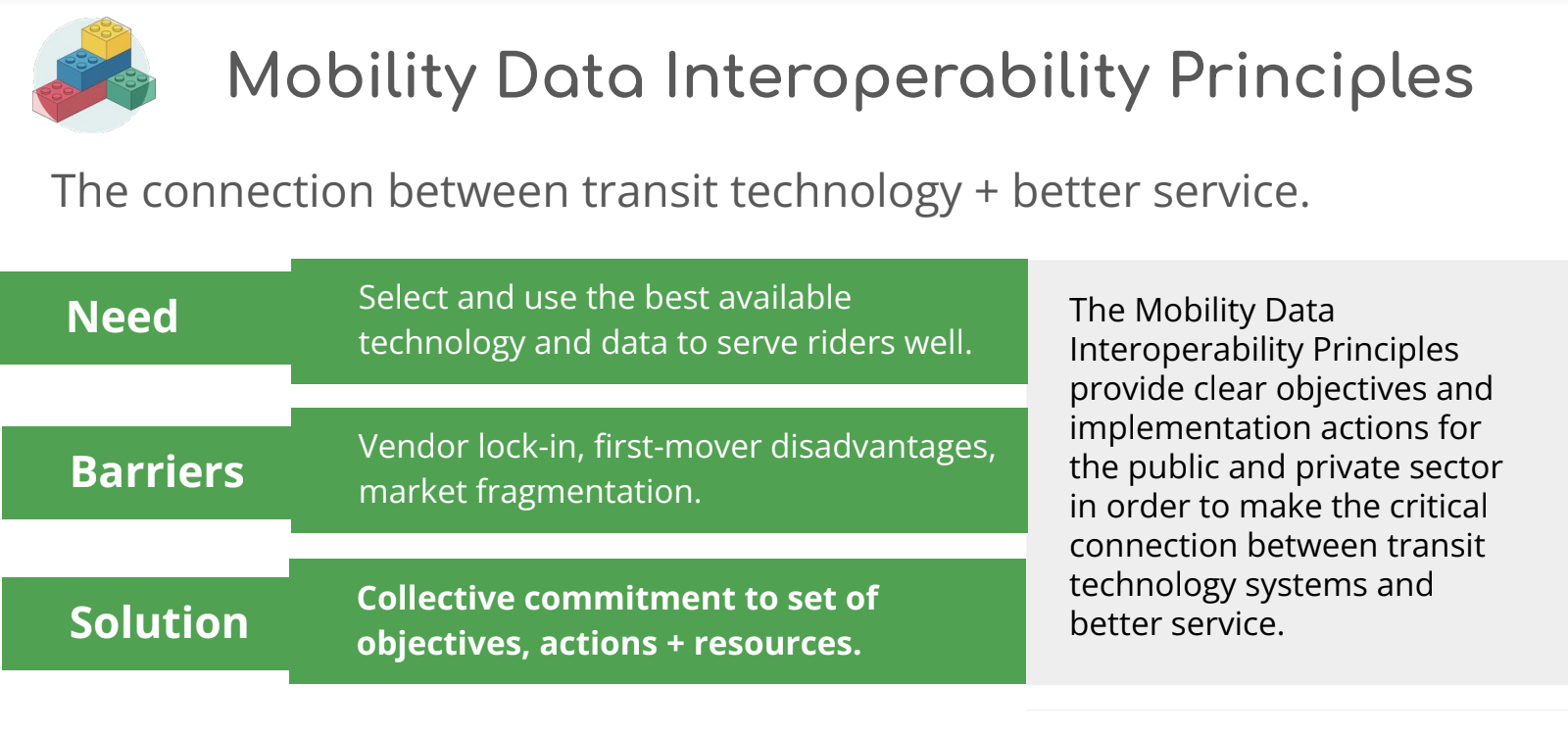Supporting the Mobility Data Interoperability Principles

Interline is pleased to sign the newly released Mobility Data Interoperability Principles. Shared data specifications and practices are key to our services and products, as well as to the overarching goals of our customers. When software systems, datasets, and vendors “play well with others,” the benefits accrue to all participants.
The principles are as follows:
- All systems creating, modifying, or consuming mobility data should be interoperable.
- Interoperability should be achieved through the development, adoption, and widespread implementation of open standards that support the efficient exchange and portability of mobility data.
- Transit agencies and other mobility service providers should have access to tools that present high-quality mobility data accessibly, equitably, and in real time to assist travelers in meeting their mobility needs.
- Transit agencies, other mobility service providers, and travellers should be able to select the transportation technology components that best meet their needs.
- All individuals and the public should be empowered through high-quality, well-distributed mobility data to find, access, and utilize high-quality mobility options that meet their needs as they see fit, while maintaining their privacy.
Also included is a glossary. This level of detail is useful for newcomers to the field, as well as for referencing the principles in formal documents like a public-sector RFP (request for proposals):
Interoperability: The ability for any mobility technology component to exchange data in an open standard or schema with other components in that mobility technology system.
The measure of success will be putting these principles into practice. Interline had the opportunity, along with other vendors, to provide feedback and suggestions based on our experiences building open-source and open-data transportation tooling, as well as our experiences helping our clients to integrate with proprietary and/or legacy systems. We thank the authors (all public-sector agencies) for using this feedback from vendors to refine the principles and supporting documentation.
These principles are a useful articulation of the collaborative practices that have been growing throughout the geospatial and transportation tech industries for years. The principles are also — to be frank — a useful articulation of what our industries should avoid: software systems and business models based on silos, walled gardens, or excessive vertical integration. It will always be a balancing act to find the optimal mix of open versus closed attributes for a software system, not to mention an organization. These principles succeed in reminding us all of the important overall goals of “empowering transit agencies and other mobility service providers and transportation system managers to provide better service, improve the customer experience, and build systems that are equitable and sustainable.”
Originally posted to the Interline blog on November 18, 2021.
Written by: